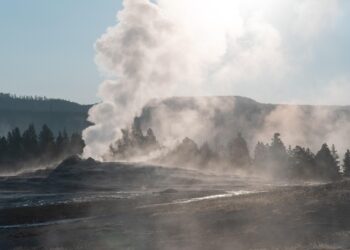Preserving Our Planet: The Urgency of Resource Conservation
As climate change continues to threaten the health of our planet, the importance of resource conservation has never been more critical. From water scarcity to deforestation, our natural resources are being depleted at an alarming rate. It is essential that we take action now to preserve these resources for future generations. In this article, we will explore the urgency of resource conservation and provide practical tips for individuals and communities to make a difference.
The Impact of Resource Depletion
The depletion of natural resources has far-reaching consequences for the environment, human health, and the economy. Water scarcity, for example, affects over 2 billion people worldwide and is only expected to worsen as climate change intensifies. Deforestation, another major issue, not only destroys vital habitats for wildlife but also contributes to greenhouse gas emissions.
Resource depletion also has serious implications for food security, as unsustainable agricultural practices deplete the soil and water resources needed to grow crops. Additionally, the extraction and burning of fossil fuels for energy production are major contributors to air pollution and climate change.
Why Conservation is Essential
Conservation is essential to ensure that future generations have access to clean air, water, and food. By preserving our natural resources, we can protect biodiversity, mitigate the effects of climate change, and promote sustainable development. Conservation also plays a crucial role in maintaining ecosystems and preventing the extinction of endangered species.
Furthermore, resource conservation is vital for preserving the economic stability of communities that rely on natural resources for their livelihoods. By implementing sustainable practices, we can ensure that these communities can continue to thrive for generations to come.
Practical Tips for Resource Conservation
There are many simple steps that individuals and communities can take to conserve natural resources and reduce their environmental impact. Here are some practical tips to help you get started:
1. Reduce, Reuse, Recycle
One of the most effective ways to conserve resources is to reduce waste by reusing and recycling items whenever possible. By choosing reusable products and recycling materials such as paper, plastic, and glass, you can help reduce the demand for new resources.
2. Conserve Water
Water is a precious resource that is often taken for granted. By taking simple steps such as fixing leaky faucets, using water-efficient appliances, and avoiding unnecessary water waste, you can help conserve this vital resource.
3. Support Sustainable Agriculture
Supporting sustainable agriculture practices such as organic farming and regenerative agriculture can help preserve soil health and water quality. By choosing locally grown, organic produce, you can support farmers who are committed to protecting the environment.
4. Use Renewable Energy
Switching to renewable energy sources such as solar or wind power can help reduce reliance on fossil fuels and decrease greenhouse gas emissions. Many utility companies now offer renewable energy options for homeowners and businesses.
The Role of Government and Businesses
While individual actions are important, government policies and corporate practices also play a crucial role in resource conservation. Governments can implement regulations to protect natural resources, promote sustainable development, and incentivize businesses to adopt environmentally friendly practices.
Businesses, on the other hand, can take steps to reduce their environmental impact by implementing sustainable practices, reducing waste, and investing in renewable energy. Many companies are now recognizing the importance of corporate social responsibility and are taking steps to become more environmentally sustainable.
Conclusion
Preserving our planet for future generations requires a collective effort to conserve our natural resources and reduce our environmental impact. By taking simple steps such as reducing waste, conserving water, supporting sustainable agriculture, and using renewable energy, we can all make a difference. It is essential that we all do our part to protect the environment and ensure a sustainable future for all.
By working together to address the urgency of resource conservation, we can create a healthier, more sustainable planet for generations to come. Let’s take action now to preserve our planet for the future.











